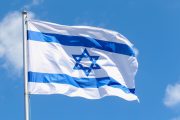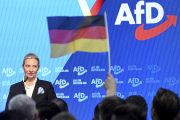
SINGAPORE — Last year, Leonid Sevastianov, the leader of the World Union of Old Believers, told Sputnik News that Pope Francis was hoping to pay a visit to Russia in the spring of 2023, as well as travel to Moscow and Saint Petersburg.
“Pope Francis hopes to visit Russia in spring. We all hope that by that time the [Russia-Ukraine] hostilities will cease. His arrival will not frighten our Orthodox society, it will not be grandiose either. This is a modest visit. There will be no major services, for example, at the stadiums,” Sevastianov said.
Religious ceremonies may take place at the Cathedral of the Immaculate Conception of the Holy Virgin Mary in Moscow and the Kazan Cathedral in St. Petersburg, but only for the pontiff’s congregation, the official added.
He claimed that Pope Francis would not resign until he pays a visit to Russia. “He told me he would not resign until he visits Russia. The pope expressed confidence th at he would come to Russia and especially highlighted the country.”
Sevastianov’s comments have stoked questions about whether the head of the Roman Catholic Church will visit Moscow.
Following the outbreak of the Ukraine-Russia crisis in February 2022, Pope Francis had voiced hope for a meeting with Patriarch Kirill of Moscow. Their previous in-person meeting had been canceled in April 2022 to prevent sending an ambiguous signal amid the Ukraine conflict.
Based on reports from Politico, “The Holy See has been asking since mid-March for a meeting between Francis and [Russian President Vladimir] Putin in Moscow,” but Russia has kept the pope waiting.
“Of course we needed the leader of the Kremlin to allocate a window of time. We haven’t yet had any response, and we are still trying, even if I fear that Putin can’t and doesn’t want to have this meeting at this time,” the pope said. Likewise, on May 3 last year, Pope Francis explained in the columns of Corriere della Sera,three weeks after the start of the military conflict in Ukraine he had asked Vladimir Putin if he could go to Russia. The pontiff said he had yet to receive a response from Putin and voiced his worry that “Putin cannot and does not want to have this meeting at this time.”
Later, in July, the pope again articulated his desire to go to Russia “to try to help with something,” he told journalist Philip Pullella in an interview published by Reuters.
Pullella, who had a 90-minute interview with the pontiff at St. Martha’s House, had hinted that such a trip could take place in September last year. He wrote, “Speaking of the situation in Ukraine, Francis noted that there have been contacts between the Vatican Secretary of State, Cardinal Pietro Parolin, and the Russian Foreign Minister, Sergei Lavrov, about a possible trip to Moscow.”
The pope pointed out that talks with Russia have remained “very open, very cordial, very diplomatic in the positive sense of the term. For the moment everything is fine, the door is open.” Indeed, on June 14, the director of the first European department of the Russian Ministry of Foreign Affairs, Alexej Paramonov, had authenticated the existence of a “confidential dialogue” between the Holy See and Russia on “a certain number of questions” about Ukraine, particularly humanitarian ones.
Furthermore, the pontiff said he would like to “go to Moscow first” before going to Kyiv. “We exchanged messages about this, because I thought that if the President of Russia gave me a little window, I would go there to serve the cause of peace,” he said. “And now, it is possible that when I return from Canada, I will be able to go to Ukraine, it is possible.”
Dmitry Pesko, spokesperson for the Kremlin, had said in July last year that a visit by Pope Francis to Russia and a meeting with Putin were not on the agenda at that time. “Such a summit visit must be discussed, it must be prepared, but as far as I know there are no substantial contacts for this at the moment,” he said.
Cardinal Kurt Koch, prefect of the Dicastery for Promoting Christian Unity, slammed Putin’s “brutal war of aggression” and lambasted the attitude of Patriarch Kirill. Koch stated that a meeting between the Patriarch of Moscow and Pope Francis would give rise to “serious misunderstandings” as long as the conflict lasted.
“It is very difficult to continue this dialogue during the war, because the positions are extremely different. The Holy Father has repeatedly declared how terrible and absurd war is. On the other hand, the Patriarch of the Russian Orthodox Church has not only legitimized, but also blessed this horrible war in Ukraine, with metaphysical and religious motives,” the cardinal explained in an interview with Vatican Radio in July 2022.
Notably, the pope was cited as stating that NATO was somehow culpable for the conflict in Ukraine because of “NATO barking at Russia’s door.” In mid-June last year, the pope declared in an interview with an Italian Jesuit magazine that the war in Ukraine was “perhaps somehow either provoked or not prevented.” His remarks raised some eyebrows among NATO’s allies.
The prospect of a papal trip to Moscow, a long-standing dream of many recent popes, can be traced back to the 1990s, when — after the fall of the Berlin Wall and then-Soviet President Mikhail Gorbachev’s visit to the Vatican — Pope John Paul II hoped that, with a trip to Moscow, he could ultimately realize his idea of a Europe able to “breathe with her two lungs.”
That longtime dream trip did not materialize during the lifetime of Pope John Paul II. Joaquin Navarro Valls, then director of the Holy See Press Office, claimed that such a trip was “an open door as long as it is not closed.”
According to Vatican Cardinal Pietro Parolin, the relationship between the Holy See and Russia dates back to the 14th century, when the Rus of Moscow and the Holy See enjoyed ties. In 1472, Pope Paul II blessed the marriage between the Great Prince of Moscow, Ivan III, and Byzantine Princess Sophia. The ambassadors of Popes Pius V and Gregory XIII frequently visited Moscow as well. Additionally, the Holy See served as a mediator in the Livonian War from 1582 to 1583 that involved Russia, Poland, and Sweden, with the Jesuit Fr. Antonio Possevino conducting mediations.
The Holy See and Russia established full diplomatic ties in 1816, though the Russian representatives in the Vatican did not have a Vatican counterpart in St. Petersburg. However, papal envoys were always dispatched to participate in the coronations of the emperors of Russia.
Unfortunately, Vatican-Russian ties took a nosedive after the communist-inspired 1917 Russian Revolution changed everything. The result was that, apart from unofficial contacts, no diplomatic relations could take place.
In 1960 the Holy See restarted regular contact with the Soviet Union, with contacts attaining a “stable working level” and Soviet Foreign Affairs Minister Andrei Gromyko meeting many times with Popes Paul VI and John Paul II.
In recent times, Moscow has invited Roman Catholic pontiffs over several times, with the first invitation coming from Mikhail Gorbachev during his visit to the Vatican on December 1, 1989. Gorbachev’s successor, Boris Yeltsin, invited the pope when he first met him on December 20, 1991, and after his second visit in February 1998.
Throughout the 1990s and 2000s, Holy See-Russian relations experienced highs and lows due to talks over Russian laws on religious freedom and tensions with the Moscow Patriarchate.
Putin visited the Vatican on March 13, 2007, and the Holy See Press Office release that followed pointed out that both the Holy See and Russia were willing to further bilateral relations. In 2009, relations were raised to the level of full diplomatic relations.
Also keeping a close watch on Pope Francis’ travel itinerary has been a group of Catholics who believe in prophecies reportedly revealed by the Virgin Mary in her apparitions in Garabandal, Spain in the 1960s. According to LifeSite News, the Virgin Mary was reported to have said in Garabandal that after a pope’s visit to Moscow, “hostilities would break out in different parts of Europe.”
Media reports that quoted the Garabandal visionaries stated that communism, led by Russia, would take over many parts of democratic countries, while Christians would be persecuted. Therefore, proponents of the Garabandal apparitions, led by Glenn Hudson, a close friend of one of the Garabandal alleged seers, Conchita Gonzalez, posit that a Pope’s visit to Moscow would be significant as it will indicate a Russian incursion of Europe and persecution of Christians.
A spokesperson from the Kremlin highlighted that a papal visit to Moscow could only happen after “careful preparation” and a settlement of Catholic-Russian Orthodox ties.
Another issue lurking in the background is that of the “Uniates,” which, in Russian Orthodox parlance, alludes to the Catholics of the Byzantine Rite from western Ukraine, whose church properties had been given to the Orthodox Church after former Soviet dictator and murderous tyrant Joseph Stalin declared the former outlaws.
To make matters more complicated, the Ukrainian ambassador to the Holy See, Andriy Yurash, said on July 10 last year that he was trying his best to prevent a new meeting between Patriarch Kirill of Moscow and Pope Francis from happening.
“We diplomats are doing everything possible to prevent this meeting from taking place,” Yurash explained in an interview with Radio Liberty. “It would not be beneficial for ecumenical dialogue and would not add weight to the apostolic capital,” he added.
For the time being, maintains EWTN Vatican, although 2023 will likely be a year of many trips for Pope Francis, a papal trip to Moscow and Kyiv seems unlikely.
Thus, the question remains — Will Pope Francis visit Moscow or not?
In the wake of what has been discussed above, perhaps the most definite answer as of now is that only time will tell.




